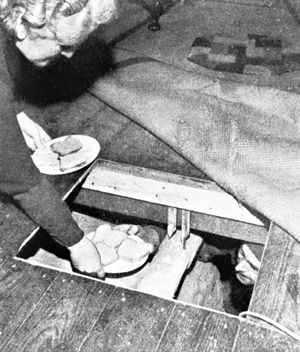Being and Belonging: Jewish-Gentile Relations in the Occupied Netherlands Through the Lens of a Microscope
Social Sciences Building, Room 250
3502 Trousdale Parkway
Los Angeles, CA 90089
United States

A public lecture by Geraldien von Frijtag (Utrecht University, the Netherlands)
2017-2018 Center Research Fellow

In this lecture, Professor Geraldien von Frijtag Drabbe Künzel will explore Jewish-gentile relations in the Netherlands in the years just before, during and just after the Holocaust. It is a commonly held view among both Dutch scholars and the general Dutch public at large, that these relations had been good in their country, a believed epitome of tolerance and a safe haven for Jews for centuries. Yet during the five years of Nazi-occupation, an estimated 101,800 Jews were murdered in the Netherlands, i.e. 73% of the pre-war Jewish community. Compared to the victim-percentages in surrounding Western European countries, like Belgium (40%), France (25%) and Luxemburg (20%), this percentage is extraordinarily high. How do we reconcile these two apparently incompatible findings?
Professor von Frijtag Drabbe Künzel will argue for a re-examination of the so-called myth of Dutch tolerance and advocate for in-depth and small-scale research into individual trajectories of Jews and their 'emotional communities'. Who did Jews consider to be their peers and friends and how were these feelings of individual and group identity affected by the rise of Nazism, first abroad and then in their home country? Did friendships between Jews and gentiles cool down once the external pressure increased, or, on the contrary, did they become stronger and even grew into bonds of assistance and resistance? How were emotional ties translated in actual help? Did emotional communities revive after the killings and if so, how? Professor von Frijtag will discuss what the testimonies from the USC Shoah Foundation Visual History Archive reveal about these questions.

Refreshments will be served. Please RSVP to [email protected].